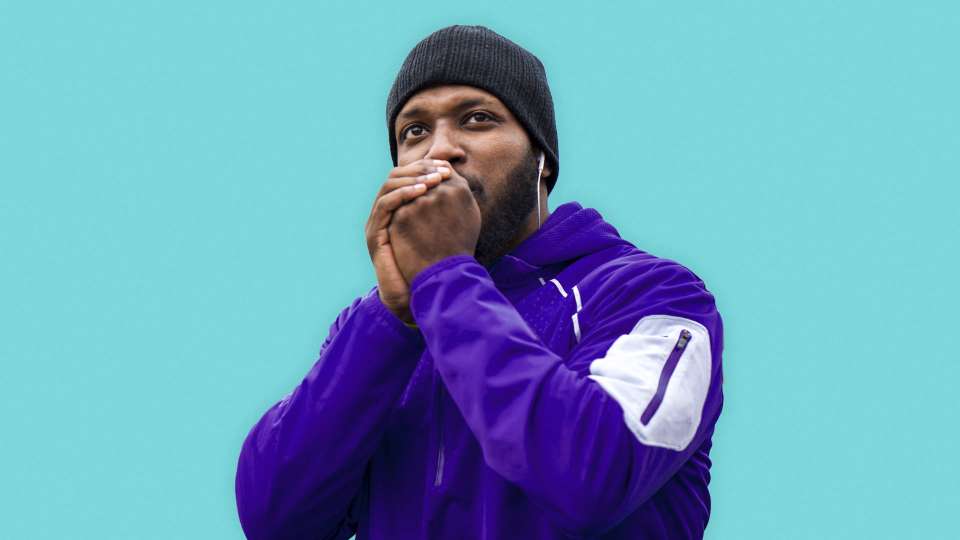What Runners Need to Know About the Immune System

For avid runners, it can be hard to modify your training regimen when you get sick. With the start of the cold and flu season, you may be wondering: How long should I wait to get back into running after coming down with something? Or, if I’m not feeling too bad, is it OK to go for a run with the sniffles?
Whether you’re a lifelong runner or new to the sport, it’s important to understand the impact running has on the immune system.
How does running affect my immune system?
The immune system is complex. As white blood cells help fight off infections, your body temperature and blood oxygen levels change. Hormones such as cortisol and adrenaline modulate how blood cells work. What you eat, how much sleep you get, how stressed you are, what medications you take and your medical history all impact how the immune system functions.
The effects of endurance running on the immune system have been well researched. In one study, a group of runners had blood drawn at regular intervals while running for three hours. Afterward, researchers looked at their white blood cells and hormone levels. They observed an initial increase in most types of white blood cells and both cortisol and adrenaline levels. Following the endurance exercise, there was a subsequent reduction in some types of white blood cells. The immune system returned to normal within 24 hours of recovery.
While this is interesting, what does it actually mean for runners?
Researchers have found a relationship between the intensity and duration of runs and immune function. Moderately intense workouts tend to strengthen the immune system. For most people, this means an hour run at a steady pace.
Running 10 miles or more or running to exhaustion, however, may temporarily weaken the immune system. This impairment of immune function generally lasts only for a few hours, although for some people, it may take several days to recover, especially for those with an already weakened immune system. Marathon runners have been observed to be up to six times more likely to get the common cold after a race.
Should I be worried about sickness if I run a lot?
The answer is not to avoid long or hard runs, but rather to run smarter. Prevention is key. Simple steps can be taken to reduce your risk of illness:
- Limit time spent in public or crowded spaces, especially after longer distance runs.
- Maintain a strong immune system by sleeping seven to eight hours per night.
- Eat healthy foods, including sufficient carbohydrates to maintain your glycogen stores, plus plenty of fruits and vegetables.
- Get your annual vaccinations.
- Wash your hands regularly, avoid touching your face and carry a small bottle of hand sanitizer.
- If it makes you more comfortable, wear a face mask and keep your distance from other runners.
The data is currently mixed as to whether antioxidant supplements are of benefit to runners trying to prevent infection. Supplementation of vitamins is only helpful if someone is deficient in a vitamin (more is not better).
While training, try to avoid overcrowded running trails and let the immune system fully recover after a particularly intense or long workout. If this is not a possibility, a simple way to bolster the immune system is to make sure your glycogen stores are replete between workouts by fueling with a well-balanced diet. Additionally, increasing training intensity gradually will help your body adjust to tough workouts without running down your immune system.
Is it a bad idea to run if I’m already sick?
In most cases of common illnesses, such as a viral upper respiratory tract infection (common cold), there are no definitive recommendations. Study results are mixed, with some showing a benefit from rest and some showing no difference between resting and continuing to run.
In general, runners with illnesses more serious than a head cold should consider taking time off. Keep in mind the neck rule: if your symptoms remain above the neck (stuffy nose, headache, sore throat) it may be OK to continue to exercise in moderation.
If you are running a fever, coughing up phlegm, vomiting or having diarrhea, a period of rest until your symptoms resolve is recommended. Significant exercise after you’ve had a fever may predispose you to exertional heat stroke, which can be a life-threatening emergency in an endurance athlete. If you have COVID-19, had a high-risk exposure or tested positive for the disease, please stay home and follow isolation guidelines to prevent the spread to others.
How long should I take to recover from illness before running?
After a common cold or flu, it is recommended to gradually re-acclimate to exercise before going all out (such as in a race). Likewise, runners who had asymptomatic or mild COVID-19 should slowly return to activity while monitoring for chest pain, shortness of breath, dehydration or overheating. Seek medical evaluation if any of these symptoms develop. A general guideline is to take a week off from significant exertion after your isolation period is over and you’re asymptomatic.
In moderate to severe cases of COVID-19, and especially if you required hospitalization, consult with a medical professional before returning to running. You may need further diagnostic studies to avoid detrimental complications associated with COVID-19.
Mark Harrast, MD, is a sports medicine physician and medical director of the Sports Medicine Center at Husky Stadium and the UW Medicine Seattle Marathon. He specializes in diagnosing and treating sports-related injuries and illnesses in endurance athletes, runners and triathletes. He is also an accomplished competitive endurance athlete himself.

 Healthy ideas for your inbox
Healthy ideas for your inbox





